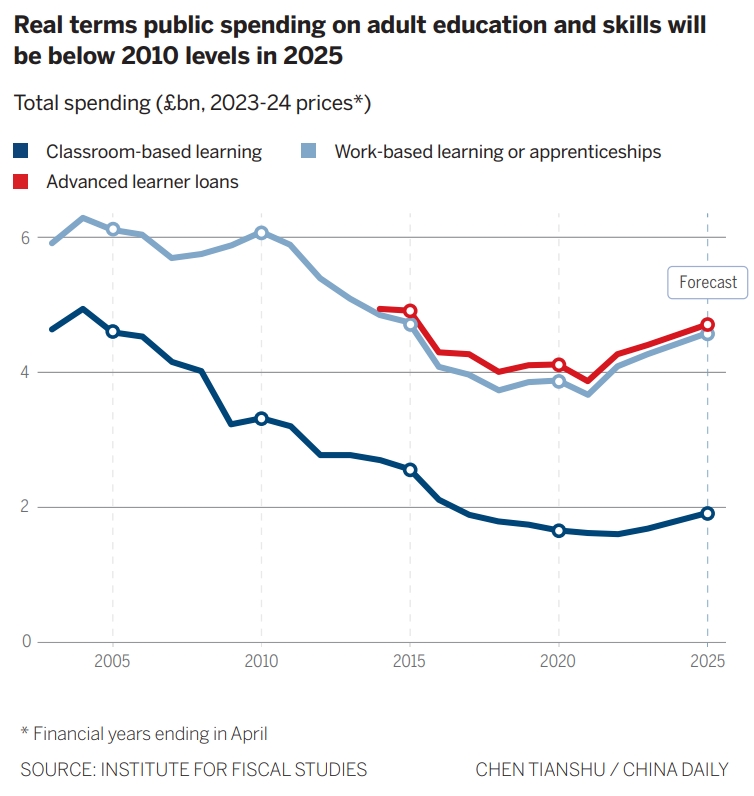Student surge sparks funding reform call
England's education system urged to adapt to demand for tech skills


Alternative solutions
Other options include adjusting the apprenticeship levy, a payroll tax on large employers that finances apprentice and senior worker training, introducing more government grants to bolster strategic subjects, and investing in student maintenance grants to provide essential support for disadvantaged students.
Tom Richmond at the education and skills think tank EDSK told China Daily that as there is unlikely to be much new funding available after the UK general election that will take place on July 4, the priority should be generating more impact out of the existing funding pots.
"For example, the apprenticeship levy has proved immensely wasteful and has even managed to reduce the number of apprenticeships available to young people," he said. "Meanwhile, universities have been widely criticized for offering too many degree courses that make little or no contribution to economic growth, raising productivity or tackling skills shortages.
"In both cases, the government now needs to take on a more proactive role in determining which learners and courses are most deserving of financial support."
David Hughes, chief executive of the AoC, said the jump in student numbers would put a "huge strain "on education budgets.
"Despite ever-increasing spending on more undergraduate higher education courses at universities, the skills needs of the nation are not being met," he told the Financial Times newspaper. "Too many people are missing out on the skills they need and employers are crying out for."
Clear objectives for the education sector need to be set in order to tackle the UK's skills shortage and low economic productivity, added Rushforth.
























